Jigawa State has launched a dry season Rice farming programme aimed at producing 3.6 million metric tonnes of Rice annually.
Governor Umar Namadi unveiled the scheme in Auyo Local Government Area, describing it as a major step towards strengthening food security and positioning the state as Nigeria’s top rice producer.
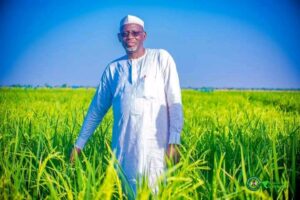
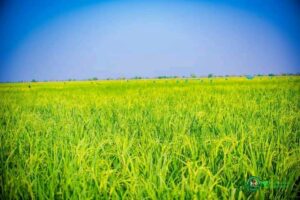
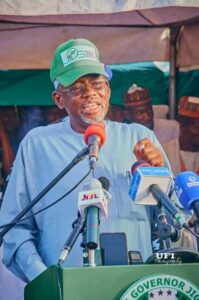
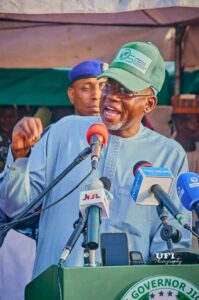
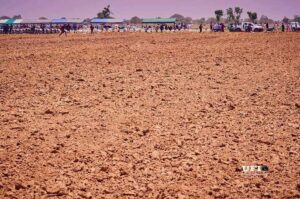
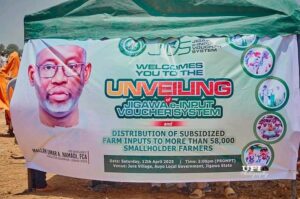
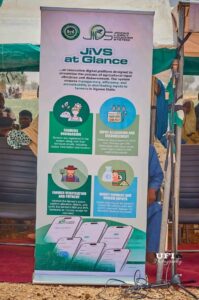
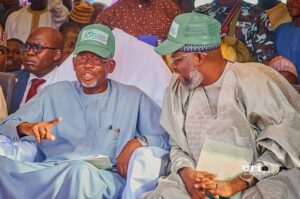
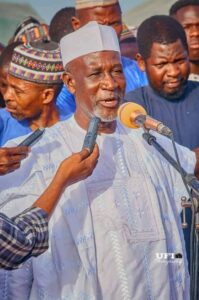
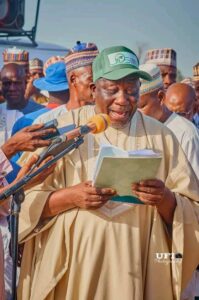
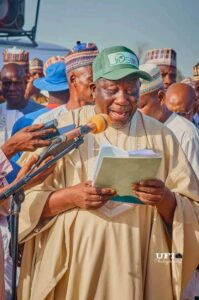

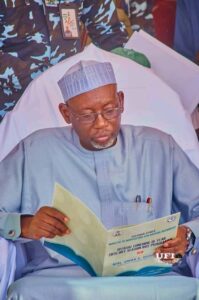

 Under the initiative, 58,500 farmers will receive subsidised inputs, including certified seeds, fertilisers, agrochemicals, and irrigation equipment.
Under the initiative, 58,500 farmers will receive subsidised inputs, including certified seeds, fertilisers, agrochemicals, and irrigation equipment.
The state is distributing 20,000 water pumps half of them solar-powered to support dry season farming.
The government also plans to cultivate 1.2 million hectares of rice annually, with a target of 500,000 hectares by 2030.
To support mechanisation, 360 tractors and 70 combine harvesters will be made available through a newly established Farm Mechanisation Service Company.
Governor Namadi said the programme would be closely monitored through a digital input voucher system to prevent diversion and ensure accountability.
Dr Saifullahi Umar, the governor’s technical adviser on agriculture, said the programme focuses on five key areas: access to inputs, extension services, financing, climate-smart practices, and data-driven monitoring.
Farmers will be grouped into over 1,100 clusters and trained in modern farming methods, irrigation management, and financial literacy.
Extension workers will be equipped with mobile apps to improve advisory services.
Input loans will be provided with flexible repayment options, including in-kind payments and long-term instalment plans for solar pumps.
Jigawa is currently the second-largest rice-producing state in Nigeria.
The government says the new initiative is part of wider efforts to reduce dependence on food imports and support national agricultural growth.




